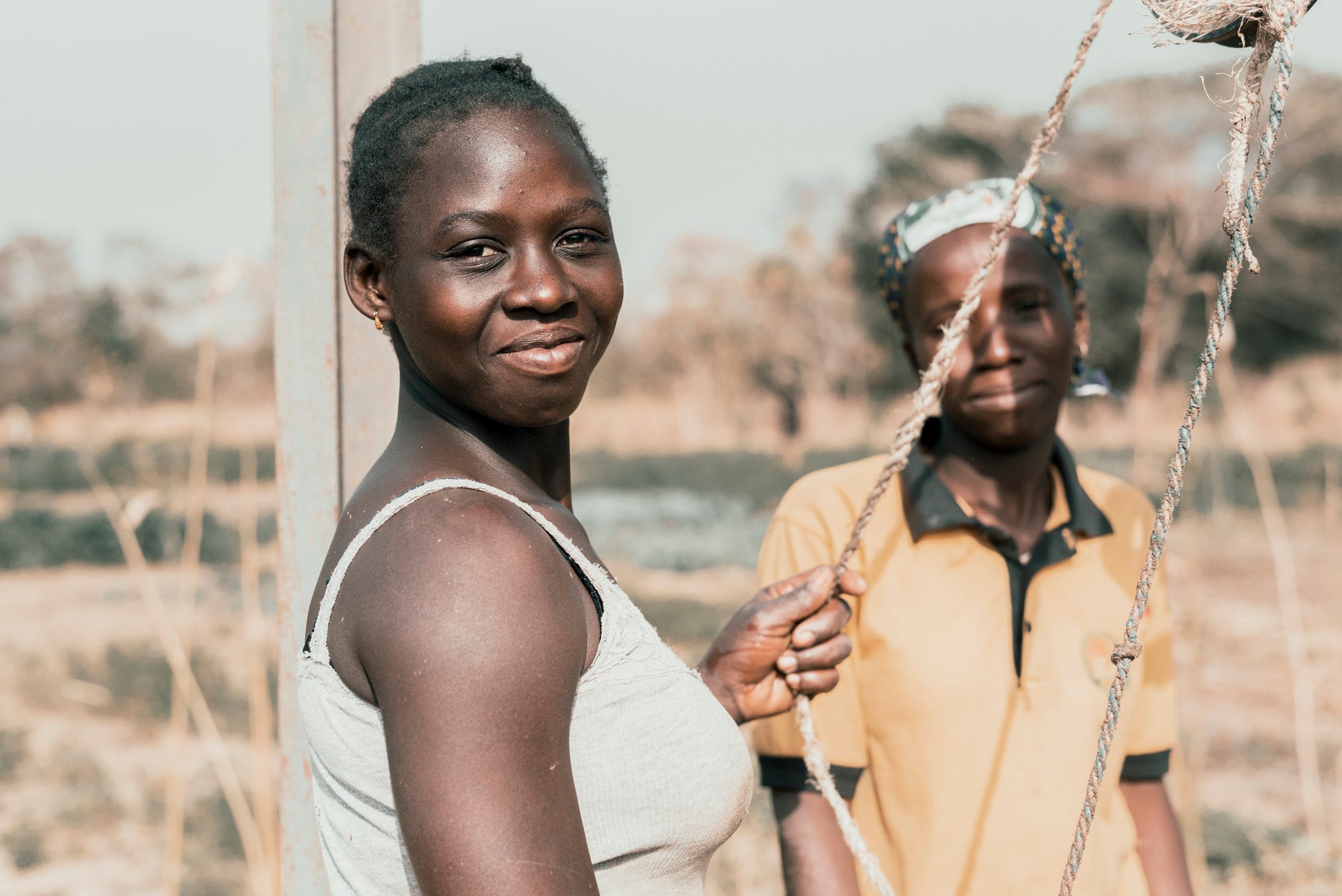It makes economic sense for women to lead the fight against the climate crisis
Research shows that when women are in leadership roles, there is a positive impact on sustainable natural resource management and climate crisis adaptation activities


Your support helps us to tell the story
From reproductive rights to climate change to Big Tech, The Independent is on the ground when the story is developing. Whether it's investigating the financials of Elon Musk's pro-Trump PAC or producing our latest documentary, 'The A Word', which shines a light on the American women fighting for reproductive rights, we know how important it is to parse out the facts from the messaging.
At such a critical moment in US history, we need reporters on the ground. Your donation allows us to keep sending journalists to speak to both sides of the story.
The Independent is trusted by Americans across the entire political spectrum. And unlike many other quality news outlets, we choose not to lock Americans out of our reporting and analysis with paywalls. We believe quality journalism should be available to everyone, paid for by those who can afford it.
Your support makes all the difference.Every societal issue is now gendered and that includes the biggest crisis of our time: the climate crisis.
This #Wednesday4Women, a day of action for climate campaigners to call for gender justice alongside climate justice, I am drawing attention to the women in my region, and millions of others across sub-Saharan Africa, who are bearing the brunt of a crisis they did nothing to cause. We need to break free from traditional, social and cultural norms, which directly or indirectly affect our equal rights. For us to tackle the climate crisis it’s vital that we have a gender smart approach.
On a recent trip to a farming community in Checheyi, Kawaii Area Council, Abuja, the women there told me that more than 99 per cent of them have no land of their own. As experienced farmers, the majority of them can tell how much they have been impacted by the climate crisis. Through this, we were able to provide access to organic fertiliser to more than 30 women in that community, which enabled those women to realise greater productivity.
On average it now takes 20 hours a week for women to gather biomass and drinking water in sub-Saharan Africa. They have to trek long distances and in the process can be kidnapped, raped or violated and have no time to contribute towards protecting the environment. Likewise, girls may have to drop out of school because of the time needed to collect water. Without access to education, they are disempowered.
In the Sahel region, we have more than 20 million child brides – early marriage is their and their families’ survival strategy against environmental instability.
Two thirds of those displaced by the climate crisis in my native Lake Chad region are women and, globally, they make up 80 per cent of those displaced by environmental degradation. Displacement further increases the burden women and their children bear, making them totally dependent on aid for survival. This also affects women’s contribution towards conservation activities.
Migration that should be a strategy to advance empowerment is failing. According to the United Nations High Commissioner for Refugees (UNHCR), women and adolescent girls are the most vulnerable refugees, as they face a greater risk of being trafficked for sex while moving to a foreign land and of experiencing gender-based violence while in the refugee camps. In the camps, women risk assault when they venture out in search of water and firewood. The climate crisis as a powerful weapon against gender inequality is a global reality.
Assisting women and girls to develop and manage greener technologies and renewable energy sources will contribute to national mitigation and adaptation strategies. It will help create new and greener job opportunities to promote women and girls’ economic empowerment. Access to modern energy services would help alleviate the burdens of the less privileged, especially women and girls.
Fostering climate action through a gender lens implies that developed economies, donor institutions, and policymakers can substantially decrease the vulnerability of people in the frontline of the impact of climate crises, secure developmental gains, and advance gender equality. Women’s empowerment must include a transition to an all-round female accessibility to finance. We need to make the financial sector gender sensitive, by for instance including a gender lens in climate related projects.
Research shows that when women are in decision making and leadership roles, there is a positive impact on sustainable natural resource management and climate crisis adaptation activities. Ensuring women’s participation at all levels of the climate decision-making processes is a solution-driven approach to climate adaptation and mitigation.
This decade of ecosystem restoration must identify that women have to be given the right to own land because energy poverty, resource poverty, land poverty and lack of education are leaving women and girls behind on issues that really matter. By providing security in these forms, women and girls will be enabled to contribute to ecosystem restoration.
To me there is no doubt that the climate crisis is contributing towards increasing gender inequality. And likewise that improved gender equality will help us be more resilient to the climate crisis. If we want to make any real and sustained progress for the lives of millions it’s essential that we address these twin issues together.
That’s why I’m calling on the UK government, as presidents of Cop26, to do everything in their power not only to secure global commitment to a 1.5 per cent cap on global warming, but to ensure women and girls are centre-stage at the summit. That means increasing financial support for climate action that supports gender equality and that reaches women-led organisations responding to climate crises in our communities.
We are on the front lines of the climate struggle – world leaders must not leave us high and dry.
Adenike Oladosu is a Nigerian climate activist, eco-reporter, eco-feminist and the founder of the I Lead Climate initiative in Nigeria. She specialises in equality, security and peace building across Africa, especially in her native Lake Chad region where 90 per cent of the region’s water has disappeared in the last 50 years
Join our commenting forum
Join thought-provoking conversations, follow other Independent readers and see their replies
Comments